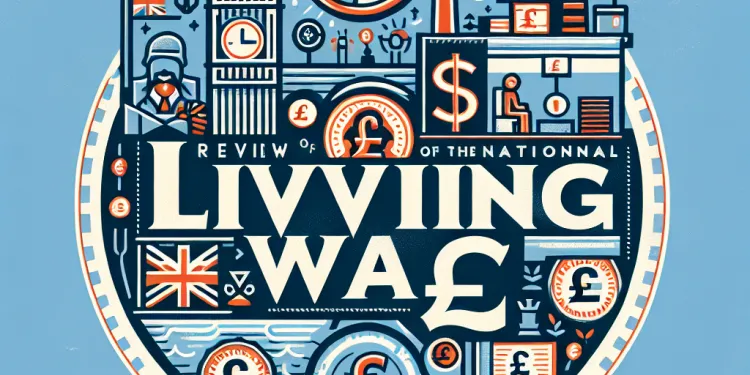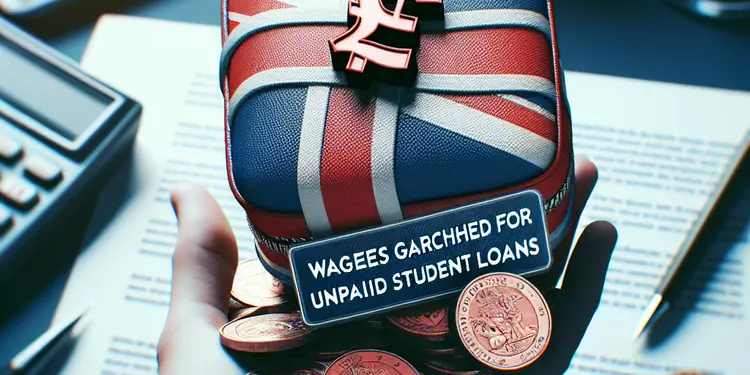
Find Help
More Items From Ergsy search
-

Are employers legally required to pay the National Living Wage?
Relevance: 100%
-

Is the Living Wage Foundation's rate the same as the National Living Wage?
Relevance: 77%
-

What happens if an employer pays below the National Living Wage?
Relevance: 76%
-

Who is eligible for the National Living Wage?
Relevance: 73%
-

How does the National Living Wage differ from the National Minimum Wage?
Relevance: 72%
-

UK national living wage increase 2026
Relevance: 72%
-

How is the National Living Wage calculated?
Relevance: 71%
-

Why is the National Living Wage being increased?
Relevance: 71%
-

What is the new UK National Living Wage for 2026?
Relevance: 70%
-

Are apprentices entitled to the National Living Wage?
Relevance: 70%
-

Are zero-hour contract workers entitled to the National Living Wage?
Relevance: 67%
-

How often is the National Living Wage reviewed?
Relevance: 67%
-

How can I calculate my new earnings based on the National Living Wage increase?
Relevance: 63%
-

Where can I find official announcements on the National Living Wage?
Relevance: 63%
-

How does the UK National Living Wage compare internationally?
Relevance: 62%
-

Will the increase in the National Living Wage affect inflation?
Relevance: 58%
-

How often do wage rates change in the UK?
Relevance: 46%
-

Does the National Living Wage increase mean my taxes will change?
Relevance: 44%
-

Do National Trust jobs require travel?
Relevance: 40%
-

What are the legal requirements for redundancy in the UK?
Relevance: 37%
-

Do gig workers have the right to a minimum wage?
Relevance: 36%
-

What are the legal requirements for redundancy in the UK?
Relevance: 36%
-

Does the HMRC Employer Bulletin cover changes in employment law?
Relevance: 36%
-

Is prior experience required to work at the National Trust?
Relevance: 36%
-

What should I do if my employer does not pay the new National Living Wage?
Relevance: 33%
-

Can my wages be garnished for unpaid student loans?
Relevance: 33%
-

Where can I find reviews from current or past National Trust employees?
Relevance: 32%
-

Does the HMRC Employer Bulletin provide guidance on compliance?
Relevance: 29%
-

Is the HMRC Employer Bulletin relevant for small businesses?
Relevance: 28%
-

Are there seasonal jobs with the National Trust?
Relevance: 28%
-

Employment Tribunal Cases Surge Amidst Gig Economy Debate
Relevance: 28%
-

What are National Trust Jobs?
Relevance: 28%
-

When will the new National Living Wage come into effect?
Relevance: 28%
-

Can I work for the National Trust part-time?
Relevance: 28%
-

Do National Trust employees receive any benefits?
Relevance: 27%
-

What age do you have to be to work at the National Trust?
Relevance: 27%
-

Can international applicants apply for jobs at the National Trust?
Relevance: 26%
-

What is the work environment like at the National Trust?
Relevance: 25%
-

What is the HMRC Employer Bulletin?
Relevance: 25%
-

Can the HMRC Employer Bulletin help with payroll management?
Relevance: 25%
Introduction to the National Living Wage
The National Living Wage (NLW) is a mandatory wage rate set by the UK government for workers aged 23 and over. It represents the minimum hourly pay that employers must provide to their eligible employees. It is part of the larger framework of statutory minimum wages, which also include the National Minimum Wage for younger workers and apprentices. Understanding whether employers are legally obligated to pay the NLW is crucial for both businesses and employees.
Legal Obligation for Employers
Employers in the UK are legally required to pay the National Living Wage to all eligible workers. This requirement is enforced under the National Minimum Wage Act 1998 and subsequent amendments. The Department for Business, Energy & Industrial Strategy (BEIS) oversees the enforcement of these regulations, alongside Her Majesty's Revenue and Customs (HMRC), which carries out checks and investigations to ensure employers comply with the law. Failure to pay the NLW can result in penalties, back pay requirements, and other legal consequences.
Determining Eligibility
Eligibility for the National Living Wage depends on several factors, including the worker's age and employment status. Workers must be at least 23 years old to qualify for the NLW rate. However, various categories of workers including casual workers, part-time workers, agency workers, and employees on probation are eligible, provided they meet the age requirement. The law also applies to workers in both the private and public sectors, as well as to those in charities and other non-profit organizations.
Calculation and Implementation
The rate of the National Living Wage is reviewed annually and usually increases with the intention of reflecting the cost of living and improving the standard of living for low-paid workers. As of the most recent updates, employers must ensure that their pay practices are aligned with the latest rate, which can vary significantly each year. Employers are encouraged to regularly review wage structures and policies to ensure compliance.
Penalties for Non-Compliance
Employers who fail to pay the National Living Wage face several legal and financial penalties. The penalties can include hefty fines calculated as a percentage of the total underpayment to all workers. Additionally, businesses may be subjected to public naming and shaming, which can damage their reputation. The law mandates that employers also pay back the shortfall to affected employees. Continuous or deliberate breaches can result in more severe penalties and legal action.
Conclusion
In the UK, paying the National Living Wage is a legal requirement for eligible workers, and employers must diligently comply with the rules. Regularly monitoring wage levels and making timely adjustments is not only a legal responsibility but also an ethical one that contributes to fair work practices and improves employee well-being. Information about the latest rates and compliance guidance can be accessed through government websites and advisories.
Introduction to the National Living Wage
The National Living Wage (NLW) is the lowest amount of money that workers aged 23 and over must be paid by their employers in the UK. This rule is made by the government. It is part of the rules that give different minimum wages for younger people and apprentices. Knowing if employers must pay the NLW is important for both businesses and workers.
Legal Obligation for Employers
In the UK, employers must pay the National Living Wage to all workers who qualify. This is the law because of the National Minimum Wage Act 1998. The Department for Business and another group, HMRC, check that employers follow these rules. If an employer doesn’t pay the NLW, they can get fines, have to pay back money, and face other legal problems.
Determining Eligibility
To get the National Living Wage, a worker must be at least 23 years old. Different kinds of workers like part-time, agency, and probationary workers can get it if they are old enough. This law is for workers in all types of jobs, whether they work in businesses, public jobs, or charities.
Calculation and Implementation
The National Living Wage is checked every year and usually goes up to help workers with the cost of living. Employers need to make sure they pay the latest rate, which can change each year. They should look at their pay rules often to follow the law.
Penalties for Non-Compliance
Employers who do not pay the National Living Wage can get in trouble. They can pay big fines and might have to give back the money they owe to workers. Also, they can be publicly named, which can hurt their business. If they keep breaking the law, they can get into more trouble.
Conclusion
In the UK, paying the National Living Wage is the law for workers who can get it, and employers must follow this law. Checking wage rates and changing them in time is a legal duty. It also helps create fair work and better worker well-being. For the newest wage rates and help with following the rules, workers and employers can use government websites.
Frequently Asked Questions
What is the National Living Wage?
The National Living Wage is the minimum wage rate set by the government for workers aged 23 and over in the UK.
Are employers legally required to pay the National Living Wage?
Yes, employers are legally required to pay the National Living Wage to eligible workers.
Who is eligible for the National Living Wage?
Workers aged 23 and over are eligible for the National Living Wage in the UK.
What are the consequences for not paying the National Living Wage?
Employers can face penalties, including fines and arrears of pay if they fail to pay the National Living Wage.
Does the National Living Wage apply to part-time workers?
Yes, part-time workers are entitled to the National Living Wage if they meet the age criteria.
How is the National Living Wage rate determined?
The UK government sets the National Living Wage rate and it is regularly reviewed.
Can employers pay below the National Living Wage with an agreement?
No, employers cannot agree to pay less than the National Living Wage.
How can workers check if they are paid the National Living Wage?
Workers can check their pay stubs or use government resources to verify their wage meets the National Living Wage.
What should a worker do if they are paid below the National Living Wage?
Workers should first discuss the issue with their employer and can report underpayment to HMRC if not resolved.
Are apprentices entitled to the National Living Wage?
No, apprentices have a separate minimum wage rate, which is generally lower.
Can the National Living Wage rate change?
Yes, the National Living Wage rate is reviewed annually and can change based on government policy.
Who enforces the payment of the National Living Wage?
The enforcement of the National Living Wage is handled by HM Revenue and Customs (HMRC) in the UK.
Are employers required to inform workers about the National Living Wage?
While not explicitly required, it is good practice for employers to inform workers about their wage rights.
Is the National Living Wage applicable to workers on zero-hours contracts?
Yes, workers on zero-hours contracts are entitled to the National Living Wage if they are 23 or older.
Does the National Living Wage apply to freelancers or self-employed workers?
No, the National Living Wage does not apply to freelancers or self-employed workers.
What documentation should employers keep regarding wage payments?
Employers should keep accurate records of pay and hours worked for compliance with wage regulations.
How often must employers pay the National Living Wage?
Employers must ensure every pay period reflects the National Living Wage rate for eligible workers.
Can tips and gratuities count towards the National Living Wage?
No, tips and gratuities cannot be used to satisfy National Living Wage obligations.
Are foreign workers entitled to the National Living Wage?
Yes, all workers in the UK are entitled to at least the National Living Wage regardless of their nationality.
Can newly-hired employees be paid below the National Living Wage during training?
No, new employees must be paid at least the National Living Wage if they are eligible, even during training.
What is the National Living Wage?
The National Living Wage is the money that workers aged 23 and older must be paid at least for each hour they work. It is there to make sure people get fair pay to live on.
If you find reading hard, you can:
- Ask someone to read with you.
- Use a text-to-speech tool to read the text aloud.
- Highlight important words or phrases to help understand.
The National Living Wage is the smallest amount of money the government says workers aged 23 and over in the UK must be paid.
Do bosses have to pay the National Living Wage by law?
Yes, bosses must pay the National Living Wage to workers who can get it by law.
Who can get the National Living Wage?
Workers who are 23 years old or older can get the National Living Wage in the UK.
What happens if you don't pay the National Living Wage?
If a company does not pay the right money, they can get in trouble. Here is what can happen:
- The company might have to pay money back to the workers.
- They might have to pay a big fine, which is a lot of money.
- The company name might be shown to everyone for not following the rules.
If you need help with reading, try using:
- Audio books to listen instead of reading.
- Reading apps that read text out loud for you.
- Asking someone you trust to explain hard words.
If bosses do not pay the National Living Wage, they can get into trouble. They might have to pay a fine or pay workers the money they owe them.
For help, use a dictionary to understand any difficult words. Get someone to read with you, or use a text-to-speech tool to listen to the words.
Does the National Living Wage apply to part-time workers?
The National Living Wage is a rule about pay. It is for workers over a certain age. It makes sure they earn enough money.
Good news! The National Living Wage is for all workers. This includes people who work part-time. If you work part-time, you should still get the right pay.
Remember to check your pay to make sure it's right. If you need help, ask someone you trust or talk to a worker support service. They can help you understand your pay.
Yes, if you work part-time and meet the age rules, you must be paid the National Living Wage.
How is the National Living Wage rate set?
The National Living Wage is the lowest money workers can get paid. It is decided by the government.
This is how they decide:
- Check costs: They look at how much things like food and rent cost.
- Ask experts: They talk to people who know a lot about money and jobs.
- Talk to workers and business owners: They ask people who work and run businesses what they think is fair.
Tools to help you understand better:
- Ask someone to explain: You can ask a family member or friend to help you.
- Use a dictionary: A picture dictionary can help you with hard words.
- Watch videos: Videos can show how the process works in an easy way.
The UK government decides how much the National Living Wage should be, and they check it often to see if it needs to change.
Can bosses pay less than the National Living Wage if agreed?
No, bosses cannot pay workers less than the National Living Wage, even if workers agree. There are rules that say everyone must get at least the National Living Wage.
If you are not sure what you should be paid, you can ask for help. You can:
- Talk to someone you trust about your pay.
- Use online tools to check what the right pay is for you.
No, bosses cannot pay less than the National Living Wage.
How can workers check their pay?
Here is how workers can see if they get paid the right amount:
- Look at your payslip. It shows how much money you get each week or month.
- Check the National Living Wage. It is the least amount of money workers should get.
- Use a calculator online. It can help you see if you get the right pay.
- Ask someone for help. You can ask a family member, friend, or someone at work.
Workers can look at their pay slips or use help from the government to make sure they get paid the National Living Wage.
What can a worker do if they get paid less than the National Living Wage?
If you get less money than the National Living Wage, here are some simple steps you can take:
- Talk to Your Boss: Ask your boss why your pay is less.
- Check Payslips: Look at your pay slips to see how much money you get each time.
- Look for Help: Contact places that can help, like a union or citizen advice group.
- Keep Records: Write down dates and times when you talked to your boss or others about pay.
If you need help reading or understanding this information, try using:
- Reading Apps: Use apps on phones or tablets that read text out loud.
- Picture Charts: Use pictures or charts to better understand what to do.
If a worker thinks they are not getting paid enough, they should talk to their boss first. If things don't get better, they can tell HMRC about it.
Do apprentices get the National Living Wage?
Apprentices are people who learn on the job. They often get paid less than other workers.
If you are an apprentice and 25 years old or older, you may get the National Living Wage.
If you are younger than 25, you might not get the National Living Wage.
Check with your boss about what you should be paid.
If you need help, ask someone you trust or use a website that can help you understand more about your rights.
No, apprentices have their own special minimum wage. This wage is usually lower than the normal minimum wage.
Can the National Living Wage rate change?
The government can change the National Living Wage. This can happen each year. When they change it, they tell everyone what the new rate is.
If you find it hard to understand, you can ask someone for help. You can also use tools like a text reader that reads out loud to you.
Yes, every year the government checks the National Living Wage. It might change based on what the government decides.
Who makes sure people get paid the National Living Wage?
The National Living Wage is about the money people must be paid for the work they do in the UK. HM Revenue and Customs, also called HMRC, makes sure workers are paid the right amount of money.
Do bosses have to tell workers about the National Living Wage?
Bosses must let workers know how much money they should be paid.
The National Living Wage is the lowest pay workers over a certain age should receive.
If you need help understanding this, you can:
- Ask a friend or family member to explain it to you.
- Use an online tool that reads text out loud.
- Look for videos online that explain the National Living Wage.
Employers should tell workers about their pay rights. This is a good thing to do.
Do people on zero-hours contracts get the National Living Wage?
Yes, people who work on zero-hours contracts should get the National Living Wage. The National Living Wage is the lowest amount of money a worker can be paid. Remember to check your pay and ask for help if you think it's wrong.
Tools that can help:
- Ask someone you trust to help you check your pay.
- Use a calculator to check your hours and pay.
- Look for websites or phone numbers where you can get advice about pay and work.
Yes, if you are 23 or older and have a zero-hours contract, you should get the National Living Wage.
Do freelancers or self-employed people get the National Living Wage?
If you work for yourself or do freelance work, you may not get the National Living Wage.
Here are some tips to help:
- Ask someone to help you understand your pay.
- Look online for more information about your job type.
- Use a calculator online to check how much you should earn.
No, the National Living Wage does not apply to freelancers or self-employed workers.
What papers should bosses keep about paying money to workers?
Bosses need to keep papers to show they pay workers the right money. These papers help check that everyone gets paid correctly.
Here are some things bosses should keep:
- Names of workers
- How much money each worker gets
- How many hours each worker works
- The dates workers get their money
To help understand these papers, you can use tools like a calculator for adding numbers or ask someone you trust to explain them.
Bosses should write down how much money you earn and how many hours you work. This makes sure they follow the rules about pay.
How often must bosses pay the National Living Wage?
Bosses must pay the right wages to workers.
They need to pay the National Living Wage each time workers get paid.
This could be each week or month.
If you need help, you can use a calculator or ask someone.
Bosses must make sure that workers get the right amount of money for every pay period. This is called the National Living Wage.
Do tips and extra money count towards the National Living Wage?
No, you cannot use tips to pay for the minimum wage.
Do workers from other countries get the National Living Wage?
Workers from other countries in the UK have the right to get the National Living Wage. This is the least amount of money workers can get for their work.
If you have questions or need help, you can talk to someone who knows about jobs and pay.
In the UK, all workers must get at least the National Living Wage. This is true no matter what country they are from.
Can new workers get less money than the National Living Wage when learning their job?
No, new workers must get at least the National Living Wage if they qualify, even when they are training.
Helpful tools: Picture cards or money charts to understand wages.
Support: Ask someone at work to explain wages in simpler words.
Useful Links
Have you found an error, or do you have a link or some information you would like to share? Please let us know using the form below.
-->
This website offers general information and is not a substitute for professional advice.
Always seek guidance from qualified professionals.
If you have any medical concerns or need urgent help, contact a healthcare professional or emergency services immediately.
Some of this content was generated with AI assistance. We’ve done our best to keep it accurate, helpful, and human-friendly.
- Ergsy carfully checks the information in the videos we provide here.
- Videos shown by Youtube after a video has completed, have NOT been reviewed by ERGSY.
- To view, click the arrow in centre of video.
- Most of the videos you find here will have subtitles and/or closed captions available.
- You may need to turn these on, and choose your preferred language.
- Go to the video you'd like to watch.
- If closed captions (CC) are available, settings will be visible on the bottom right of the video player.
- To turn on Captions, click settings .
- To turn off Captions, click settings again.
More Items From Ergsy search
-

Are employers legally required to pay the National Living Wage?
Relevance: 100%
-

Is the Living Wage Foundation's rate the same as the National Living Wage?
Relevance: 77%
-

What happens if an employer pays below the National Living Wage?
Relevance: 76%
-

Who is eligible for the National Living Wage?
Relevance: 73%
-

How does the National Living Wage differ from the National Minimum Wage?
Relevance: 72%
-

UK national living wage increase 2026
Relevance: 72%
-

How is the National Living Wage calculated?
Relevance: 71%
-

Why is the National Living Wage being increased?
Relevance: 71%
-

What is the new UK National Living Wage for 2026?
Relevance: 70%
-

Are apprentices entitled to the National Living Wage?
Relevance: 70%
-

Are zero-hour contract workers entitled to the National Living Wage?
Relevance: 67%
-

How often is the National Living Wage reviewed?
Relevance: 67%
-

How can I calculate my new earnings based on the National Living Wage increase?
Relevance: 63%
-

Where can I find official announcements on the National Living Wage?
Relevance: 63%
-

How does the UK National Living Wage compare internationally?
Relevance: 62%
-

Will the increase in the National Living Wage affect inflation?
Relevance: 58%
-

How often do wage rates change in the UK?
Relevance: 46%
-

Does the National Living Wage increase mean my taxes will change?
Relevance: 44%
-

Do National Trust jobs require travel?
Relevance: 40%
-

What are the legal requirements for redundancy in the UK?
Relevance: 37%
-

Do gig workers have the right to a minimum wage?
Relevance: 36%
-

What are the legal requirements for redundancy in the UK?
Relevance: 36%
-

Does the HMRC Employer Bulletin cover changes in employment law?
Relevance: 36%
-

Is prior experience required to work at the National Trust?
Relevance: 36%
-

What should I do if my employer does not pay the new National Living Wage?
Relevance: 33%
-

Can my wages be garnished for unpaid student loans?
Relevance: 33%
-

Where can I find reviews from current or past National Trust employees?
Relevance: 32%
-

Does the HMRC Employer Bulletin provide guidance on compliance?
Relevance: 29%
-

Is the HMRC Employer Bulletin relevant for small businesses?
Relevance: 28%
-

Are there seasonal jobs with the National Trust?
Relevance: 28%
-

Employment Tribunal Cases Surge Amidst Gig Economy Debate
Relevance: 28%
-

What are National Trust Jobs?
Relevance: 28%
-

When will the new National Living Wage come into effect?
Relevance: 28%
-

Can I work for the National Trust part-time?
Relevance: 28%
-

Do National Trust employees receive any benefits?
Relevance: 27%
-

What age do you have to be to work at the National Trust?
Relevance: 27%
-

Can international applicants apply for jobs at the National Trust?
Relevance: 26%
-

What is the work environment like at the National Trust?
Relevance: 25%
-

What is the HMRC Employer Bulletin?
Relevance: 25%
-

Can the HMRC Employer Bulletin help with payroll management?
Relevance: 25%


